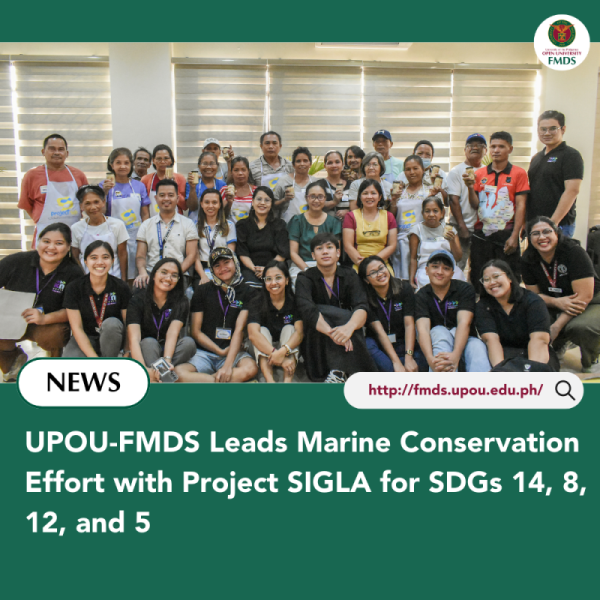
On 06 May 2024, the Faculty of Management and Development Studies (FMDS) of UP Open University (UPOU), in collaboration with Kaya Natin! Youth – Los Baños (KNY-LB), successfully launched its SLIDE (Sustainable Livelihoods Innovation and Digitally-transformed Enterprise) public service initiative under the CIDAS (Community Inclusivity, Digital Transformation and Acceleration towards Sustainability) program. Dr. Joane V. Serrano, Dean of FMDS-UPOU, and Assistant Professor Tricia C. Ascan, Program Chair of the Associate of Arts in Digital Entrepreneurship (AADE) program at FMDS-UPOU, graced the opening ceremony and delivered their opening remarks and introduced SLIDE, respectively. On the other hand, KNY-LB, represented by Ms. Iarra Mae D. De Silva laid out the rationale behind the event.

Project SIGLA, an acronym for Sustainable Innovation Gearing towards Livelihood Advancement of Fishing Communities in Los Baños, embodied a fusion of youth-driven innovation and academic expertise. It is a project proposal that bagged the best proposal award under the category of Katubigan at the SIBOL ng Laguna 2023, an award giving body which recognizes exemplary and empowering youth organizations in the province of Laguna.

By focusing on SDGs 13: Life Below Water, Project SIGLA underscores its commitment to addressing climate change impacts on aquatic ecosystems. Through collaborative efforts between KNY-LB and UPOU-FMDS, this project displayed how innovation and collective action can capacitate local fisherfolks in the lake community of the municipality of Los Baños. Beyond its immediate impact, Project SIGLA sets a precedent for interdisciplinary collaboration, illustrating how youth-led initiatives can contribute meaningfully to sustainable development goals, particularly in safeguarding marine environments and ensuring the resilience of coastal communities.

SDG 12: Responsible Consumption and Production
The event commenced with a presentation by Assistant Professor Cesar Z. Luna, a marine scientist and the current program chair of the Diploma in/Master of Land Valuation and Management program at UPOU-FMDS. Asst. Prof. Luna delved into the significance of Laguna Lake in the protection of freshwater ecosystems and wildlife species, emphasizing its cultural and biological diversity critical for the food security of local communities.
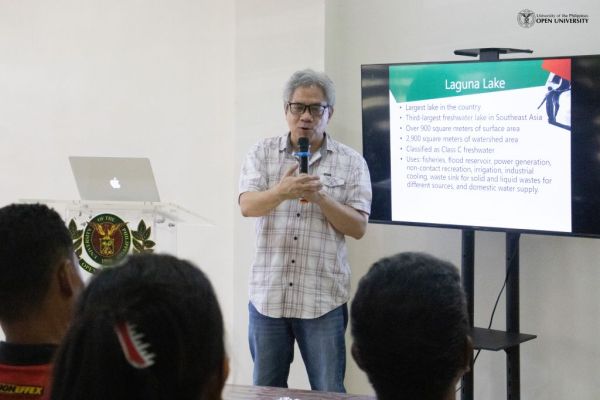
SDG 8: Decent Work and Economic Growth
Following this, representatives from the Bureau of Fisheries and Aquatic Resources (BFAR) Region IV-A, Mr. Joseph Ryan N. Ligsa, Aquaculturist, and Ms. Erica D. Lopez, Aquaculture Technician, concentrated on food safety protocols for fish handling with a special focus on Kanduli (Arius dispar), the primary commodity of the project. They also led a training session on Kanduli Fermentation, known as Pagbuburo in Filipino, and provided insights into fundamental principles of product packaging.
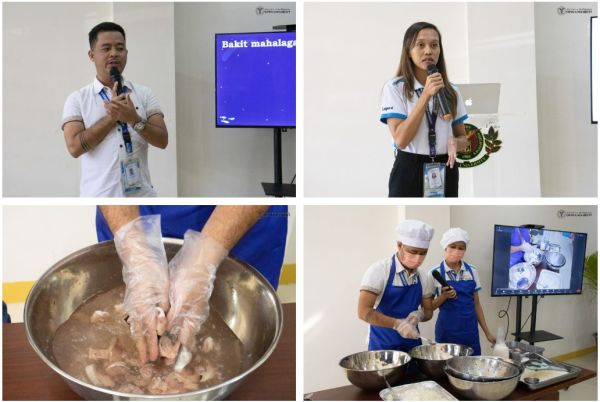
Afterwards, Ms. Faith R. Guerra, Course Coordinator of e-Commerce of the Continuing Education Program at UPOU-FMDS, enriched the session by sharing her extensive expertise in Digital Marketing. Ms. Guerra’s contribution was particularly significant given SLIDE’s overarching goal of supporting small-scale entrepreneurs. This segment was designed with the aim of aiding local fisherfolks, many of whom possess entrepreneurial awareness and engage in income-generating activities alongside their primary occupation of fishing. Her insights can act as a practical guide for leveraging digital platforms to amplify the visibility and profitability of their ventures, aligning perfectly with SLIDE’s mission to empower and uplift local communities.
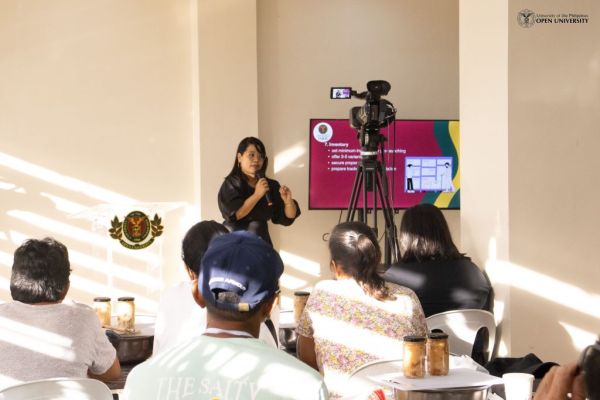
To conclude the event on a flavorful note, Mrs. Pinky P. Halos, assisted by Mr. John Mark Vergara, performed an engaging cooking demonstration and taste-testing session. This interactive segment presented inventive methods for preparing Kanduli in diverse culinary styles, challenging prevailing misconceptions about its aroma and taste.

By showcasing various appetizing dishes such as (L to R) Spanish Sardines, Kanduli Fillet, Sinigang na Kanduli, and Ginataang Kanduli, the demonstration sought to dispel outdated notions regarding Kanduli’s purported unpleasant smell and mediocre flavor. Through this culinary exploration, attendees gained insights into how Kanduli can be transformed into delectable meals or side dishes (e.g. spread, sauce, etc.). This hands-on experience not only heightened awareness of Kanduli‘s culinary versatility but also contributed to its marketability, paving the way for broader acceptance and consumption.
One of the key strategies envisioned by UPOU-FMDS and KNY-LB to ensure the sustainability of the project involves exploring the potential formation of a community-based enterprise among the participants. This initiative aims to harness the collective efforts and talents of the individuals involved, empowering them to showcase their processed variations of Kanduli to a commercial market. By organizing them into a community-based enterprise, UPOU-FMDS and KNY-LB seek to foster a supportive ecosystem where young people, government institutions, fisherfolks, and the academe, can collaborate, share insights, and collectively promote their products. Through this collaborative endeavor, participants would not only gain a platform to exhibit their processed Kanduli creations but also cultivate a sense of ownership and pride in their contributions to the local economy.

SDG 5: Gender Equality
The whole-day event was attended by a total of 19 participants from five fishing communities and barangays in Los Baños namely Brgy. Bambang, Brgy. Bayog, Brgy. Malinta, Brgy. Mayondon, and Brgy. Tadlac, consisting of Barangay Fisheries and Aquatic Resource Management Council (BFARMC) members and active women community leaders.
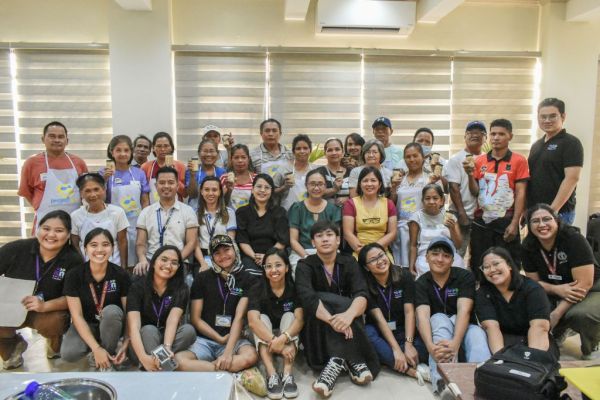
Written by Raizza Anna Alforja ♦ Edited by Larry N. Cruz ♦ Cross-posted from the UPOU FMDS Website







